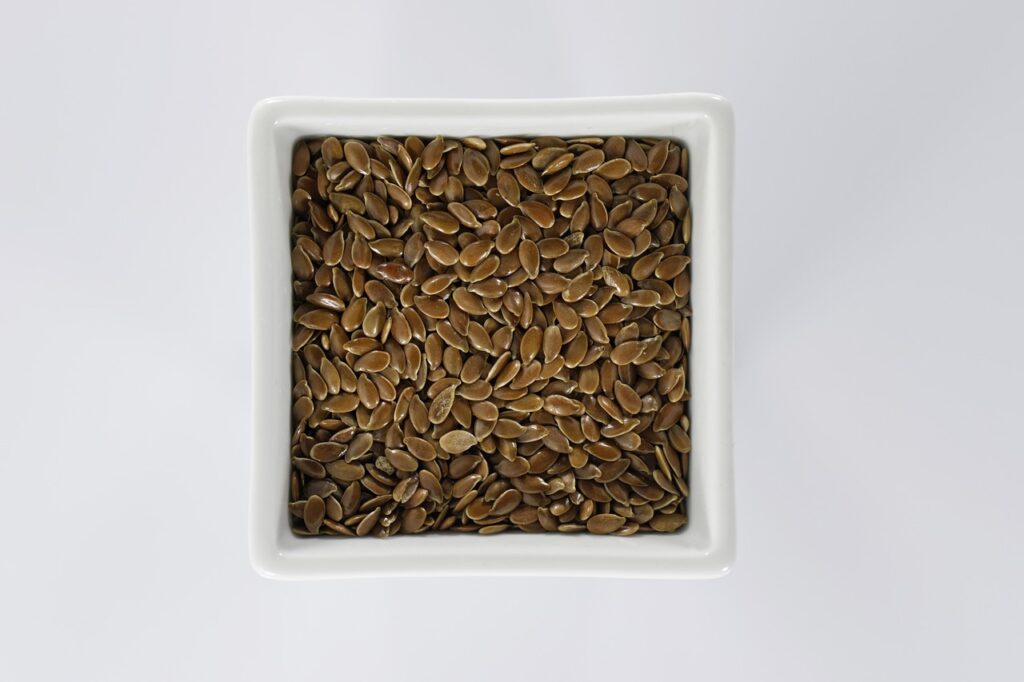
The Power of Flaxseed
Flaxseed, recognized for its richness in fiber and omega-3 fatty acids, along with plant-based lignans, emerges as a nutritional powerhouse, as highlighted by the Mayo Clinic. This unassuming seed goes beyond its digestive health benefits and showcases promise in reducing the risk of breast cancer.
Insights from a New Study
A recent study published in the journal Microbiology Spectrum delves into the potential link between flaxseed lignans and breast cancer risk. The study suggests that the lignans in flaxseed may play a pivotal role in altering gut microorganisms, consequently influencing the risk of breast cancer.
Microbial Dynamics and Breast Cancer
The study reveals that flaxseed lignans have the ability to reshape the relationship between gut microorganisms and mammary gland microRNAs (miRNAs). These miRNAs regulate genes associated with breast cancer cell growth and migration. Dr. Jennifer Auchtung, assistant professor at the University of Nebraska – Lincoln, emphasizes the significant role of gastrointestinal microbiota in impacting human health.
“In this study, we found correlations between diets enriched in flaxseed … and miRNA profiles in the mammary gland that regulate many pathways, including those involved in cancer development,” Auchtung explained.
Flaxseed’s Known Benefits
Beyond its potential in breast cancer prevention, flaxseed is a versatile ingredient known for its digestive health benefits. When ground, it becomes especially effective, offering relief from constipation. Moreover, incorporating flaxseed into your diet can contribute to reducing total blood cholesterol and LDL (“bad”) cholesterol levels, thereby lowering the risk of heart disease.
Easy Ways to Add Flaxseed to Your Diet
The Mayo Clinic provides simple tips for seamlessly integrating flaxseed into your daily meals:
- Add a tablespoon of ground flaxseed to breakfast cereal.
- Mix a tablespoon of ground flaxseed into a container of yogurt.
- Bake ground flaxseed into cookies, muffins, bread, and other baked goods.

Exploring the Link: Flaxseed and Breast Cancer Risk
To further investigate the potential link between gut microbiota and breast cancer risk, researchers conducted experiments involving female mice. The results indicated a clear connection between microbiota, mammary gland miRNA, and flaxseed lignans, suggesting a non-cancer-causing relationship.
“If these findings are confirmed, the microbiota becomes a new target to prevent breast cancer through dietary intervention,” stated Elena M. Comelli, associate professor at the University of Toronto and co-author of the paper.
Intriguing and promising, the study underscores the multifaceted benefits of incorporating flaxseed into our diets, potentially paving the way for innovative approaches to breast cancer prevention.
FAQ’s
1. What makes flaxseed a nutritional powerhouse?
Flaxseed stands out for its rich content of fiber, omega-3 fatty acids, and plant-based lignans, offering a multifaceted approach to health beyond its digestive benefits.
2. How does flaxseed potentially reduce the risk of breast cancer?
Recent studies suggest that flaxseed lignans may alter the microorganisms in the gut, influencing mammary gland microRNAs and, consequently, regulating genes linked to breast cancer cell growth and migration.
3. Can flaxseed contribute to digestive health?
Yes, especially when ground, flaxseed is known for its digestive health benefits, providing relief from constipation and promoting a healthy digestive system.
4. What role does gut microbiota play in the study’s findings?
The gastrointestinal microbiota plays a crucial role in modifying components of our diet. The study indicates correlations between diets enriched in flaxseed and miRNA profiles in the mammary gland, potentially impacting pathways involved in cancer development.
5. How can I incorporate flaxseed into my daily meals?
Integrating flaxseed into your diet is easy. Add a tablespoon of ground flaxseed to breakfast cereal, mix it into yogurt, or bake it into cookies, muffins, and other baked goods for a nutritious boost.
6. Does flaxseed help lower cholesterol levels?
Yes, flaxseed has been shown to lower total blood cholesterol and LDL (“bad”) cholesterol levels, contributing to a reduced risk of heart disease.
7. Why is ground flaxseed recommended for maximum benefits?
Ground flaxseed is recommended because whole seeds can pass through the digestive system without delivering the same level of benefits. Grinding enhances digestibility, allowing for better absorption of nutrients.
8. Is flaxseed suitable for individuals with gluten sensitivities?
Yes, flaxseed is naturally gluten-free, making it a safe and nutritious option for individuals with gluten sensitivities or celiac disease.
9. How did researchers study the link between flaxseed and breast cancer risk?
Researchers conducted experiments involving female mice, feeding them flaxseed lignan components. The findings indicated a connection between microbiota, mammary gland miRNA, and flaxseed lignans, suggesting a potential non-cancer-causing relationship.
10. Are there other health benefits associated with flaxseed?
Apart from potential breast cancer prevention, flaxseed offers various health benefits, including improved heart health, weight management, and overall well-being due to its nutrient-rich composition.